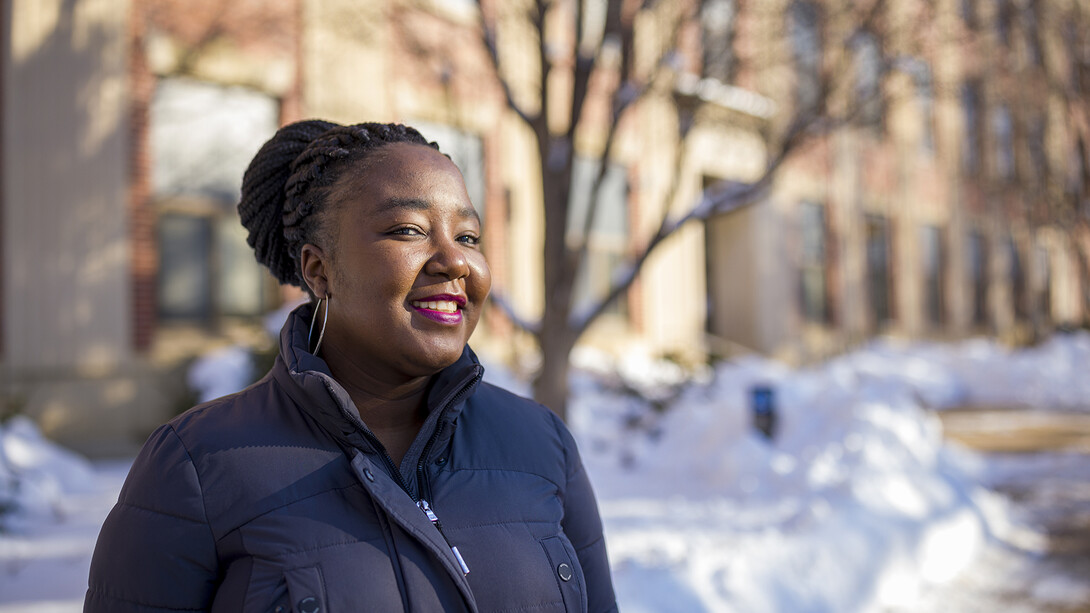
Editor's Note — This is part of a weekly student conversation series highlighted as part of Black History Month on the University of Nebraska–Lincoln's Medium page. The series will feature students who are making impacts on campus and hope to maintain that momentum in future careers.
his week, meet Memory Manda, a sociology graduate student from Lusaka, Zambia. She came to Dear Old Nebraska U as a recipient of the National Institutes of Health Fogarty Grant for HIV research training. Her goal is to build upon her research successes here in Nebraska and make a lasting impact in her home country.
What is the focus of your research?
The title of my research is “Barriers to Early Diagnosis and Treatment of Kaposi Sarcoma.” Kaposi sarcoma is a skin cancer and in Zambia, it is the second most common cancer. And it is an AIDS-defining illness, so most people who have it are HIV positive.
People with Kaposi sarcoma tend not to receive proper medical help due to a variety of hypothesized factors, from limited medical facilities in the country to issues related to transportation costs and stigma.
What made you interested in this research?
I have always been interested in health and social research. And so in my undergrad, I had done some projects on HIV and AIDS — I think one of them was on students' attitudes to HIV and AIDS — so I was interested when there was a research position and they were going to do this study on Kaposi sarcoma. So, I’ve always been interested in health, and it just so happened that most of the time I would work with projects that were HIV-related.
What do you hope to do with this research?
I hope to publish the findings because in Zambia, there isn’t a lot of information on Kaposi sarcoma, especially the barriers. Most people focus on the disease itself, and not the social-behavioral aspect. I would also like to do more research on it.
What do you hope to accomplish in your lifetime?
My biggest goal is to find myself in a place, maybe a university or nonprofit organization, that does the kind of research that I like. So, social-behavioral research, health… and do more research, publish more, and hopefully inform some policy. That’s my big thing I think; it doesn’t make sense if you do all this research and nothing is done about it.
Who is your biggest inspiration?
A number of people inspire me, I think the first person is my mom. My mom has always been a hard worker, and she’s always pushed me to do more, and she always says, “There is no limit, only the sky’s the limit.”








